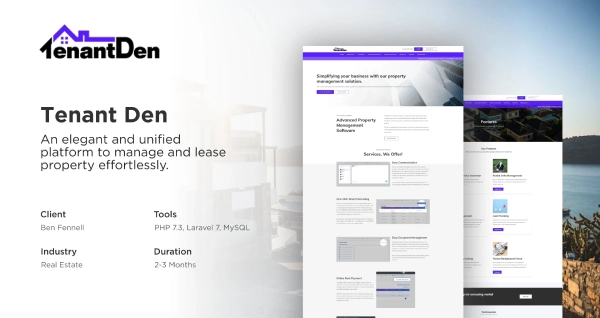Digital Transformation is something that you get to hear a lot about; every other IT company talks about it. But it’s not just a buzzword, digital transformation is much more than that. Digital transformation in real estate has taken it to another level.
Many businesses have used cutting-edge digital technology to ride the wave, with the real estate industry being one of the most enthusiastic adopters of emerging technologies. Digital transformation has become crucial for all businesses focusing on survival, increasing their bottom line, and gaining client loyalty in today’s quick-paced, tech-driven world.
The real estate industry, predicted to be worth $4,923.3 billion by 2031, has begun integrating cutting-edge technologies and tools into its procedures to improve efficiency and sophistication.
Let’s explore its latest trends and how exactly real estate stands to profit from digital transformation.
What Are The Advantages of Digital Transformation In Real Estate?
-
-
Improved Access to Information
-
Digitization makes online listings and digital mortgage and rental documentation possible, enabling more effective communication between buyers, sellers, brokers, investors, and real estate agencies.
-
-
Automated Processes
-
Automating the property management process helps real estate businesses maintain client relationships and reduce costs. This saves a ton of time and boosts productivity.
-
-
Better Access to Data
-
Data is now more transparent and available thanks to digitization, which is beneficial for the real estate sector. Everyone benefits when information from all sources is compiled into a single, integrated platform. Real estate professionals can use data analytics to determine the age, condition, and prior tenants of a building, reducing the quantity of unknown information about the asset and significantly cutting the risk for buyers and investors.
-
-
Enhanced Customer Experience
-
By offering convenient and accessible services, real estate businesses can provide better customer experiences. For instance, online property listings and virtual tours can save customers time and improve engagement, which raises customer satisfaction levels.
-
-
Extended Market Reach
-
Thanks to digital transformation, real estate companies can reach customers outside of their typical geographic regions. Additionally, it enables greater customer engagement across several touchpoints, including social media, internet advertisements, and mobile apps.
-
-
Faster Response Time
-
Thanks to cloud-based solutions, real estate agents can now act whenever and from any device, providing clients with personalized service and streamlining the transaction and documentation process so that properties can be sold quickly and hassle-free.
Top Digital Transformation In Real Estate Trends
-
-
Real-Time Transaction Tracking, eSignature, and Smart Contract
-
Finalizing a contract can be tedious and time-consuming, involving multiple individuals and paperwork. Smart contracts have gained popularity as they simplify and expedite the closing of deals.
Smart contracts, eSignatures, and transaction tracking significantly reduce the time it takes to complete deals. Technology plays a key role in this streamlined approach.
Moreover, the use of eSignatures and smart contracts eliminates the need for extensive paperwork, making document handling and processing smoother and more efficient. These tools also promote transparency between buyers and sellers, enabling them to utilize predictive analytics and gain valuable market insights.
-
-
Virtual Tour and Online View of the Property
-
The epidemic has altered the dynamics of the real estate industry. Typically, buyers are now employing an online-first approach. As a result, online listings are incorporating virtual tours more frequently. Virtual tours through VR can increase buyer engagement with the listing.
For instance, several companies have adopted virtual tours as a marketing strategy due to the coronavirus. This allows them to attract clients who prefer to avoid direct human contact, ensuring that the epidemic does not disrupt their business processes. In doing so, they gain an advantage over rivals and satisfy their clientele.
Virtual tours and video content also boost the property’s rating on popular search engines like Google, Zillow, Redfin, and realtor.com.
Properties with 3D tours have 87% more views than those without. According to up to 54% of customers, they may not even connect with listings without virtual tours.
-
-
Data Analytics
-
Traditionally, real estate firms have relied on the knowledge and judgment of their agents to make decisions. However, big data analysis now provides accurate real-time information, enabling real estate companies, investors, and developers to make better decisions by obtaining a clear image of prime prospects and an accurate risk assessment.
Data is the new oil of our century, and those who master its usage today will lead the way in the future. Over the next ten years, the global big data analytics market is anticipated to expand at a CAGR of around 11%, reaching $273.4 billion by 2026.
-
-
AI/ML in Real Estate
-
Artificial intelligence has been hailed as a true game-changer in the real estate market, projected to reach $1,335.89 billion by 2029.
Machine learning and artificial intelligence advancements provide real estate organizations with insightful data that enables more effective interactions with clients. AI and ML algorithms can process massive volumes of data, offering valuable insights into consumer behavior, which real estate brokers can then use to provide tailored offers and services.
Moreover, AI and ML enhance real estate companies’ marketing efforts. ML models can be utilized to target clients with relevant real estate marketing based on factors such as their social media usage and browsing history.
The new customer care representatives are AI chatbots, integrated into real estate company websites, offering incredibly quick and personalized assistance to clients with various tasks. Studies have shown that up to 63 percent of customers are likely to revisit a website if it offers live chat support.
-
-
Blockchain
-
Blockchain technology has been creating waves in the financial sector for several years. However, it is just now beginning to have an impact on the real estate sector. Blockchain technology can establish a safe and open system for real estate transactions. Automating the transfer of ownership and money lowers the risk of fraud and accelerates the transaction process.
Additionally, blockchain technology can create a secure and immutable system for keeping property records. This simplifies the process of tracking ownership history and helps avoid disputes over property ownership.
-
-
Real Estate Management App
-
Being present where your customers are is essential for digital transformation, which means being accessible through mobile apps. To stay competitive in today’s market, real estate firms are developing mobile applications that cater to the needs of their customers.
According to data, the market for property management software was estimated to be worth $3.04 billion in 2021 and is expected to grow at a rate of 5.6 percent between 2022 and 2030.
A mobile app empowers clients to make quick decisions by providing access to all relevant property information around-the-clock. Additionally, it enables property managers to automate administrative, financial, and back-office processes, leading to more efficient operations.
Seize the Right Opportunities With Digital Transformation in Real Estate
You have five minutes to contact a potential customer.
Real estate salespeople are responsible for quickly responding to leads. Contacting leads within five minutes can leave a significant impact. Can your agent accomplish that for each lead received? What if a request is sent at 1:30 PM?
Those who take too long to reply face the danger of losing customers to rivals. Aspiring real estate professionals should contact prospective clients as soon as possible.
Since 78% of customers will choose the company that answers first, responding within 5 minutes is the standard.
If you don’t move quickly enough, your competitors might reach out to potential customers before you do, which is an opportunity lost. Your first interaction can decide the prospect’s opinion of your reliability.
An agency can distinguish itself, showcase its unique qualities and advantages, and leave a lasting impression by being the first to reach out.
Our Experience in Building a Digital Property Management Platform
At Technocrats Horizons, we took on the challenge presented by TenantDen to build a state-of-the-art web platform. The goal was clear – to create a centralized platform where property owners could effortlessly manage their properties and offer them on lease, all in a risk-free and convenient environment.
Do not underestimate the initial hurdles. The client lacked technical proficiency, and building an all-in-one solution was no easy feat. However, we devised a well-structured plan and analyzed property management to gain a thorough understanding of its complexities.
Our hard work and collaboration resulted in TenantDen – a seamless and efficient platform that brings all property management-related functions under one roof. From posting a property to managing lease agreements, billing cycles, and payment records, TenantDen does it all.
Our journey with TenantDen is a testament to our commitment to innovation and our dedication to helping clients achieve their goals in the rapidly evolving landscape of digital transformation in real estate. To know more read the entire case study.
If you envision growth on a similar or even higher scale, choose Technocrats as your official custom web solutions partner.
Want To Scale Your Real Estate Business? Choose Us!!
Want to stay informed with industry news?
We’re here to guide you on what’s happening in the industry and how it impacts your business.











 Request a
Request a



























